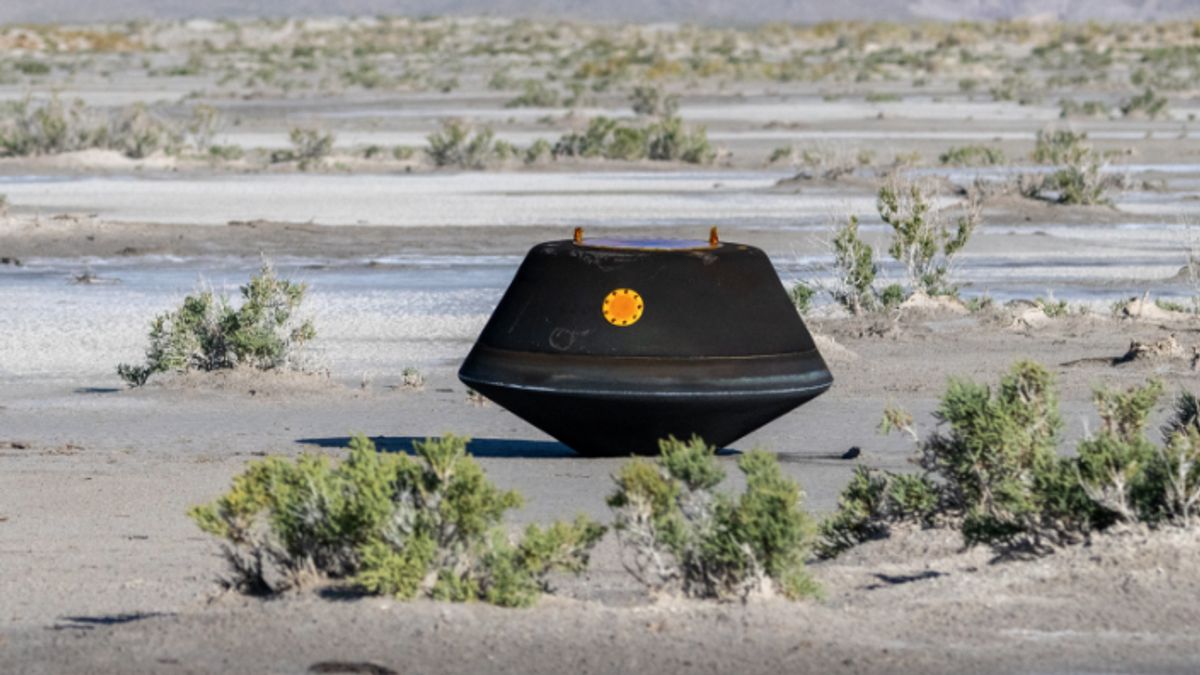JAKARTA - Bennu, an asteroid that passes near Earth once every six years, has finally arrived on Earth. Bennu arrived last Sunday, September 24 at 10:52 EDT at the Department of Defense's Utah Test and Training area.
According to the official website of the United States Aeronautics and Space Administration (NASA), Bennu was able to arrive on earth thanks to the hard work of the Origin, Spectral Interpretation, Resource Identification and Security – Regolith Explorer (OSIRIS-REx) team.
Bennu is one of the most important missions of the OSIRIS-REx team since it was first launched in 2016. The asteroid samples collected by Bennu can help scientists better understand the formation of planets and the origins of the materials of life.
When asked why it was necessary to collect asteroid samples by The Verge, the OSIRIS-REx team admitted that they were very interested in the chemical signature of organic molecules and wanted to understand them.
“We really want to understand, the things that are used in biology today, like the amino acids that make proteins and the nucleic acids that make up our genes, were they formed on ancient asteroids and sent to Earth from outer space?” said OSIRS-REx Principal Researcher Dante Lauretta.
With this aim, visiting and studying asteroids is a good step to find out the origins of the formation of the solar system. This analysis cannot be carried out haphazardly because a large laboratory is needed.
BACA JUGA:
Apart from studying asteroids, researchers have tried to study meteorites that come from outer space and fall to Earth. However, researching meteorites has challenges because researchers don't know where these objects come from.
With this limited knowledge, researchers rely on OSIRIS-REx to find asteroid samples that are pure and not contaminated by other material in the local environment.
Therefore, the Bennu samples that are still in the tube will be dismantled by scientists. Samples will be extracted to create an inventory of rocks and dust. Later Bennu pieces will be distributed to scientists around the world.
The English, Chinese, Japanese, Arabic, and French versions are automatically generated by the AI. So there may still be inaccuracies in translating, please always see Indonesian as our main language. (system supported by DigitalSiber.id)


















